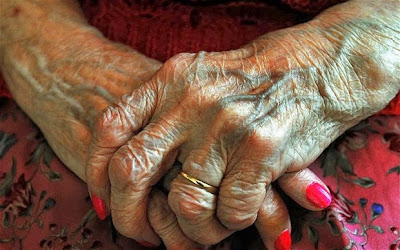While much of the activity in our office is already revolving around our Be A Santa To A Senior Program, we have not forgotten Thanksgiving. We are, as a Home Instead Family, grateful for many things this year not the least of which are the opportunities we have had to touch people's lives through service.
While not only celebrated in the United States, I believe that Thanksgiving can be qualified as a uniquely American holiday. It is true that the Canadians celebrate Thanksgiving but most of their tradition didn't become commonplace until settlers from New England began to head northward during the American revolution. In Liberia, Grenada, Norfolk Island and Japan Thanksgiving has its roots in American influence. And we have much to be thankful for.
The Pilgrims are largely credited with establishing the tradition in the New World of giving thanks to God for all that he has done. They began to celebrate in this manner while still in England. They would hold fasts and festivals of thanks in order to praise God for giving them a good harvest or for giving them the strength to survive a plague or difficulty of some type. It was only fitting that after they fled to the New World in order to have the freedom to worship in the way in which they chose, that they take the first opportunity they had to pay homage to God for blessing and protecting them.
In 1789, President George Washington proclaimed the first nation-wide thanksgiving celebration in America, "as a day of public thanksgiving and prayer to be observed by acknowledging with grateful hearts the many and signal favours of Almighty God." Somehow that last part has gotten lost through the years. We pause to give thanks for all the things that mean the most in our lives but to whom are we giving thanks. I told a friend of mine this morning that I was thankful for his friendship. That is an interesting concept. It presents our friendship as a gift that he has given me for which I am thankful. Grateful that I am, it is not deserving of a feast in his honor. Without an acknowledgement of divine influence, Thanksgiving appears to be a bit of an overkill. I am thankful for a roof over my head and a warm meal but I am not sending cards and flowers to the construction workers and grocers who actually made those physical dreams a reality. Rather I am thankful to God for giving me the abilities to be successful at work and for opening the doors to a work environment which allows me to showcase the talents with which he has enabled me. I believe that God has provided and continues to provide for my family in every way. I am thankful for that providence.
Thanksgiving affords me a great opportunity to tell the people in my life just how thankful I am for them. However, without an understanding of who wove our lives together in oftentimes unimaginable ways the thanks seems misguided at best. For example, I am thankful for the community of people whom I have recently come to know through Crossfit but I will not stop tomorrow to thank myself for joining Crossfit. Like so many other aspects of my life, there were a myriad of things that put that situation together and almost none of them I am able to take sole credit for. Some may chalk all of those those circumstances up to happenstance. Some may say that the "many and signal favours of Almighty God" are in reality nothing more than acts of chance. In that case, this holiday is pure idiocy. There is no reason to thank chance. If chance is truly to credit for all of the gifts that even the least fortunate of us have been given then Thanksgiving is nothing more than a excuse to overeat and watch football. Thanksgiving, like so many other things, makes little sense once God is taken out of it.
As a parent, I am teaching my boys to say "please" and "thank you." I am teaching them that there are two requirements for thanking someone. First, you must know what you are thanking someone for. Second, you must know who you are thanking. Perhaps we would all do well to remember the second part of that lesson this year.
"...Give
thanks to the Lord, call on his name; make known among the nations what
he has done, and proclaim that his name is exalted."
Isaiah 12:4






